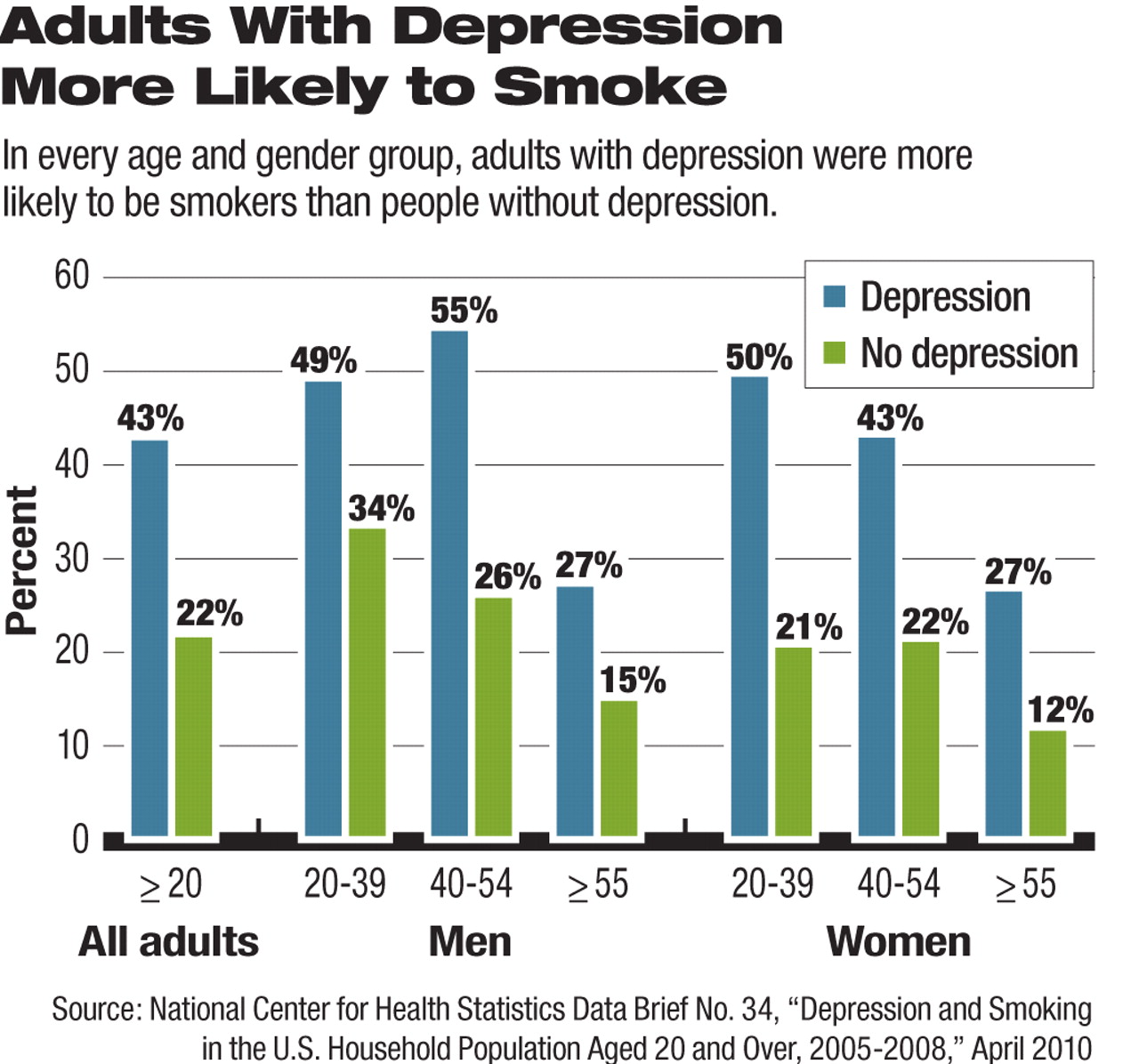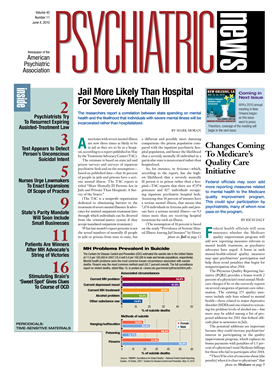The relationship between smoking and depression appears to be remarkably strong, according to data from the CDC's National Center for Health Statistics (NCHS).
The data from the National Health and Nutrition Examination Surveys (NHANES) were reported last month in a brief from the NCHS titled “Depression and Smoking in the U.S. Household Population Aged 20 and Over, 2005-2008.”
In every age and gender group, adults with depression were more likely to be smokers than were people without depression and were more likely to be heavy smokers. Moreover, among adults who had ever smoked, those with depression were less likely to have quit.
Over 60 percent of adults with depression had smoked at some point in their lives (“ever smokers”), and the rate was similar across age groups. Among adults without depression, the proportion who had ever smoked ranged from 43 percent among those aged 20 to 39 to 53 percent among persons aged 55 and over.
“We knew there was a relationship between smoking and depression, but we didn't really know strong it was,” lead investigator Laura Pratt, Ph.D., told Psychiatric News. “The magnitude of the relationship is remarkable.”
She noted, for instance, that within the general population, women smoked less than men, but that among depressed people, women smoked the same amount as men. Of women aged 40 to 54, 43 percent of those with depression were smokers compared with 22 percent of those without depression.
“Basically depression is a stronger predictor than gender when it comes to smoking,” Pratt said.
Also crucial for clinicians treating patients with depression is the finding that depressed smokers may find it harder to quit than nondepressed individuals. Among “ever smokers” aged 20 to 39 with depression, 17 percent had quit smoking, whereas 36 percent of people in this age group without depression had quit smoking. Among “ever smokers” aged 55 and over with depression, 57 percent had quit smoking, compared with almost 75 percent of people in this age group without depression.
“Sometimes people in the mental health field avoid [talking about] the issue of smoking with their patients, but it's clear that people with depression may need a lot of help to quit,” Pratt said.
Here are some other findings from the survey:
•.
Over half of men with depression aged 40 to 54 were current smokers compared with 26 percent of men without depression of the same age.
•.
Slightly more than half of adult smokers with depression smoked their first cigarette of the day within five minutes of waking up, while 30 percent of smokers without depression smoked their first cigarette within five minutes of awakening.
•.
Twenty-eight percent of adult smokers with depression smoked more than a pack of cigarettes a day, which was almost twice the rate for adult smokers without depression.
The NHANES is a continuous survey of the civilian noninstitutionalized U.S. population conducted to assess the health and nutrition of Americans. (People living in institutions, where rates of depression and smoking are higher than in the community, are not included in NHANES.) Survey participants complete a household interview and visit a mobile examination center for a physical examination and private interview. The annual interview and examination sample includes approximately 5,000 people of all ages and are extrapolated to the general population.
The questions on cigarette smoking were asked in the household interview, and the depression questions were asked in the mobile examination center.

